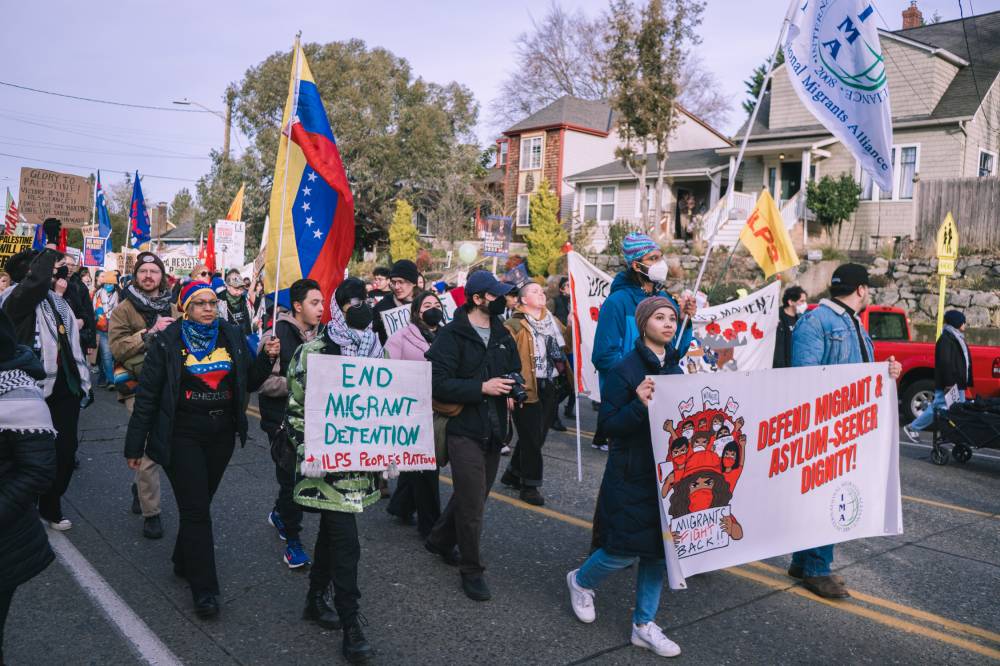Do’s and don’ts if facing US immigration checks

The Philippine Consulate General in Los Angeles, in response to growing concerns among Filipino communities over US immigration policies, held the first of a two-part hybrid seminar on Feb. 18 featuring Filipino-American legal experts.
Lawyer Marlon Baldomero outlined who is at risk of arrest by Immigration and Customs Enforcement (ICE), including:
• Individuals with pending criminal cases or prior convictions
• Those with final deportation orders (even if unaware of them)
• Individuals who committed fraud or misrepresentation in government applications
• Those deemed threats to public safety or national security
Although these are ICE’s stated priorities, Baldomero warned that enforcement could change at any time, and even those who believe they do not fall into these categories may still be vulnerable to arrest.
“Having said that, I would caution everyone against panicking… While there are reports of planned ICE activities and widespread raids, it is important to remember that these are not new. Even during previous administrations, there have been ICE arrests and immigration raids,” he said.
Proactive steps
Baldomero recommended proactive steps for Filipinos in dealing with ICE, including:
• Consulting an immigration lawyer for a legal checkup
• Applying for US citizenship if eligible
• Carrying proper identification documents
• Keeping a “Know Your Rights” card to present to ICE officers instead of speaking
• Establishing a family preparedness plan in case of detention (e.g., legal documents, childcare arrangements)
He also emphasized “defensive strategies,” such as knowing the difference between ICE agents and local law enforcement, since local police must identify themselves when asked.
Baldomero stressed that all individuals in the US, regardless of immigration status, have constitutional rights that ICE, Customs and Border Protection, and local police cannot unreasonably interfere with.
“If rights are violated, a motion to suppress evidence can be filed in criminal or immigration courts, which can weaken the government’s case against you,” he said.
Fifth Amendment
One crucial protection is the Fifth Amendment right to remain silent, which applies even in civil immigration cases due to potential criminal penalties.
This means individuals can refuse to answer questions, sign documents, or hand over papers when approached by ICE at home, work, or in public.
Baldomero warned against signing any documents without consulting an attorney, as doing so, especially a stipulated order of removal, could waive one’s right to a judge, a hearing, and bond.
To exercise the Fifth Amendment right, he advised simply handing ICE officers a Know Your Rights card, also known as the “red card,” and remaining silent.
“This is important because ICE often relies on your own statements to establish deportability. Without proof of noncitizenship, ICE cannot initiate removal proceedings against you,” he said.
‘Expedited removal’
In her presentation on rights in the criminal justice system and removal proceedings, lawyer Maria Theresa Calimag discussed the risks faced by undocumented Filipinos with criminal records.
In California, she said, additional protections exist for the constitutional right to remain silent, specifically under the Truth Act and the California Values Act.
Under these laws, undocumented individuals in jail are not required to consent to ICE interviews. If they choose to speak, they have the right to have an attorney present.
Additionally, local jails sometimes hold individuals for an extra 48 hours under ICE detainers to facilitate custody transfers.
However, detainees still retain their Fifth Amendment right to remain silent and to request legal counsel.
Calimag also explained the newly expanded “expedited removal” policies under the Trump administration, which used to apply only within 160 kilometers (100 miles) of a US border and to individuals who had been in the US for less than 14 days.
But under Trump’s new policy, expedited removal now applies nationwide and affects anyone who has been in the US for less than two years, she said.
Furthermore, individuals subject to expedited removal are not entitled to see an immigration judge or contest their deportation in court. But they have the right to an immigration attorney and the right to contact the Philippine Consulate for assistance, Calimag said.
The seminar was broadcast live on the LA Consulate General’s official Facebook page and may be viewed at https://fb.watch/xRUziwMNta/.
The second part of the hybrid seminar is on March 13.

















